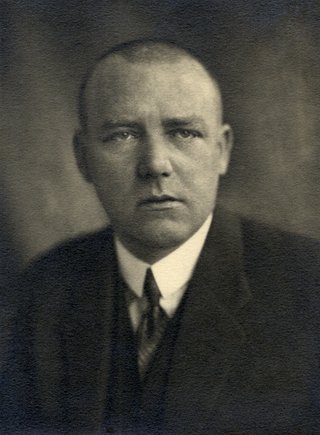Hofrat Univ.-Prof. Dr. Eduard Michael Karl Ludwig

Personalia
Born:
Died:
Profession:
Persecution:
Imprisonment 11.03.1938 - 02.04.1938,
Dachau concentration camp 02-04.1938 - 11.01.1939,
Imprisonment 11.01.1939 - May 1942,
Released 30.07.1938,
Banned from the Gau May 1942
KZ Number:
Memberships
Curriculum Vitae
Eduard Ludwig was born in Persenbeug as the legitimate son of the tax official of the same name, Eduard Ludwig, and Marie, née Irgötzmüller. After attending elementary school and grammar school, he enrolled in law at the University of Vienna. After obtaining his doctorate in law in 1908, he worked as a political advisor to the 'Deutsches Volksblatt' between 1908 and 1914. In 1910, he joined the literary office of the Federal Ministry for Foreign Affairs. Between 1918 and 1920 he worked temporarily in the press department of the State Chancellery, becoming head of the Federal Press Service in 1921. In 1924 he became an extraordinary envoy and was briefly Minister Plenipotentiary.
Until 1927 he acted as an expert on press matters for the League of Nations, in 1934 he was entrusted with the creation of a press chamber and was appointed its head in 1936. As head of the Press Chamber, he had to resign as head of the Federal Press Service. His successor is Walter Adam.
Eduard Ludwig is involved in the founding of the sound film company 'Die österreichische Woche' as well as the reorganization of RAVAG (Radio Verkehrs AG) and the Wiener Zeitung. In 1935, he proposes the establishment of a newspaper science institute. From 1936 to 1938, he was a member of the State Council and from 1937 to 1938 a member of the Bundestag.
A staunch opponent of National Socialism and a fighter for a free and independent Austria, he was arrested on the night of the invasion of Austria by the German Wehrmacht on March 11, 1938, to March 12, 1938. On April 2, 1938, he was deported on the so-called 'Prominent Transport' to the Dachau concentration camp.
On January 11, 1939, he was released from the concentration camp, transferred to Vienna and arrested again by the Gestapo. He was to be tried for abuse of office. In May 1942 he is acquitted, released and banned from the Gau. He had to move to Brandenburg an der Havel and report to the police three times a week.
It was not until the end of 1943 that he was allowed to return home to Vienna, where he immediately made contact with resistance groups. In Vienna, he witnessed the liberation of Austria from Hitler's Germany.
Immediately after the end of the war, Eduard Ludwig joined the ÖVP and was a member of the National Council between December 1945 and March 1953. In 1945, he also became a member of the Council of the 'Union Parlamentaire Européenne', in 1946 he became Head of Section in the Federal Ministry for Foreign Affairs, from 1949 he was the representative of the Austrian Parliament and from 1953 of the Federal Government at the Council of Europe and Chairman of the Austrian Parliamentary Council of the European Movement. He was also involved in the ÖVP-Kameradschaft der politisch Verfolgten und Bekenner für Österreich.
Eduard Ludwig taught as an honorary professor of newspaper studies at the University of Vienna, where he was head of the Institute for Newspaper Studies from 1946 to 1959. In 1946, he was the founder and chairman of the 'Association of Intellectuals in Austria'.
Citations
Dokumentationsarchiv des österreichischen Widerstands (DÖW)
Wien Geschichte Wiki unter www.geschichtewiki.wien.gv.at/Eduard_Ludwig#tab=Grunddaten
Wikipedia unter de.wikipedia.org/wiki/Eduard_Ludwig_(Politiker)
Matricula Online
